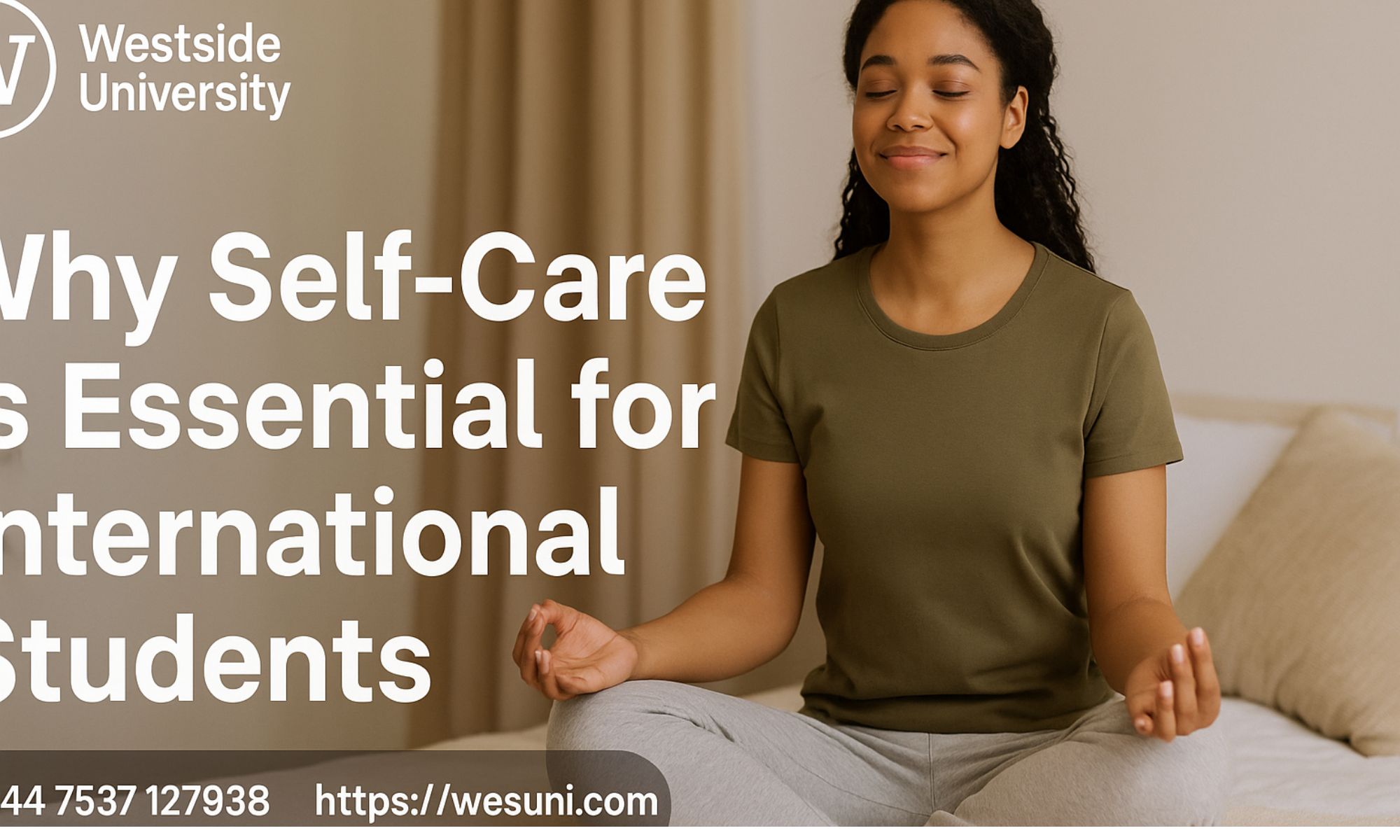Studying abroad is a dream come true for many students. It offers the chance to pursue academic goals, explore new cultures, and create lasting memories. Yet, behind the excitement, many international students face unique pressures—academic challenges, cultural adjustments, homesickness, and financial concerns. Without proper self-care, these pressures can quickly lead to burnout, stress, or declining mental and physical health.
That’s why self-care is essential for international students. It’s not a luxury—it’s a necessity for staying balanced, healthy, and successful while living far from home. This article explores why self-care matters, common challenges students face, and practical tips to integrate wellness into daily life abroad.
The Unique Challenges International Students Face
1. Academic Pressures
Universities abroad often have different teaching styles and higher expectations. International students may feel extra pressure to perform well because of the financial investment and sacrifices their families have made.
2. Cultural Adjustment
Moving to a new country requires adapting to different norms, behaviors, and traditions. This adjustment period, often called culture shock, can feel overwhelming and emotionally draining.
3. Homesickness
Being away from family and friends for long periods can lead to loneliness. Missing familiar foods, celebrations, and routines can also affect emotional wellbeing.
4. Financial Stress
Tuition fees, rent, food, and transportation costs add up quickly. Juggling part-time work with studies can increase stress levels.
5. Language Barriers
If classes are in a second language, students may feel anxious about expressing themselves or keeping up academically.
All these factors make self-care not just helpful—but vital—for international students.
Why Self-Care Matters
1. Improves Mental Health
Regular self-care activities, such as exercise, journaling, or meditation, reduce stress and anxiety. They also help build resilience when facing academic or personal challenges.
2. Boosts Academic Performance
A healthy body and mind lead to sharper focus, better memory, and higher productivity. By taking care of yourself, you’re also taking care of your studies.
3. Supports Physical Wellbeing
Eating balanced meals, getting enough sleep, and staying active protect your immune system—especially important when living in a new environment.
4. Encourages Social Connection
Self-care isn’t only about being alone. Joining social clubs, connecting with classmates, or participating in cultural events fosters friendships that make your journey easier.
5. Builds Long-Term Habits
The routines you establish while studying abroad can last a lifetime. Learning to prioritize wellness now will benefit you far beyond your student years.
Self-Care Strategies for International Students
1. Prioritize Sleep
Late-night study sessions may seem unavoidable, but lack of sleep affects concentration and mood. Aim for 7–8 hours of rest. Use apps or calming music to improve sleep quality.
2. Eat Well
It’s tempting to rely on fast food, especially in a new country, but nutrition plays a huge role in energy levels. Try to cook simple meals at home and explore healthy versions of local dishes.
3. Exercise Regularly
Physical activity is one of the most effective stress relievers. Whether it’s joining a gym, going for a jog, or practicing yoga, find a routine that keeps you moving.
4. Stay Connected
Homesickness can feel heavy. Stay in touch with family and friends back home through video calls, but also make an effort to connect with local students.
5. Manage Finances Wisely
Create a budget to avoid financial stress. Use student discounts, track expenses with apps, and set aside small amounts of savings for emergencies.
6. Practice Mindfulness
Meditation, journaling, or simply taking quiet walks can calm your mind. Mindfulness helps you focus on the present instead of stressing over the future.
7. Ask for Help
Most universities have counseling services and international student offices. Don’t hesitate to reach out for support when needed.
The Role of Universities in Supporting Student Wellbeing
Many universities abroad recognize the struggles international students face and provide resources such as:
- Counseling and mental health services.
- Orientation sessions on cultural adaptation.
- Student societies to promote social connection.
- Health and wellness workshops.
At Westside University (W), we encourage students to see self-care as part of their academic success. Our programs ensure that international students feel supported both inside and outside the classroom.
Practical Self-Care Checklist for International Students
- ✅ Sleep 7–8 hours nightly.
- ✅ Cook at least two home-made meals per week.
- ✅ Exercise three times per week.
- ✅ Call family at least once a week.
- ✅ Use a budgeting app to track expenses.
- ✅ Schedule downtime for hobbies or relaxation.
- ✅ Seek help early if you feel overwhelmed.
Conclusion: Self-Care Is Success
International students often feel pressured to focus only on academics and forget about their personal wellbeing. However, success abroad is not just about grades—it’s about maintaining balance and enjoying the experience.
By making self-care a priority, students can handle stress, stay healthy, and truly thrive in their new environment.
At Westside University (W), we guide students through every stage of their journey—from admission to cultural adjustment—ensuring they stay supported, happy, and healthy while abroad.
👉 Apply now at https://wesuni.com/apply
📞 Call us at +44 7537 127938 for guidance today.


